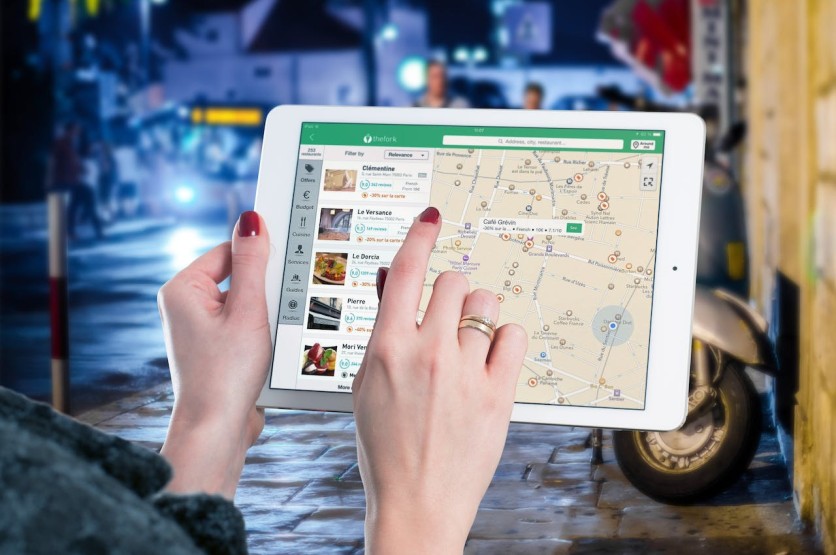
In today's digital age, digital maps have evolved beyond their original navigational purpose. They are now integral parts of diverse platforms that enhance social interactions and drive business strategies around local tourism experiences.
The Science Behind Geo-Based Services
Geo-based map services utilize Geographic Information Systems (GIS) to navigate the physical world. They analyze complex spatial relationships and patterns. GIS integrates various data types with maps, combining location data with descriptive information to provide a comprehensive spatial analysis platform. This integration supports numerous industries, streamlining decision-making and improving communication and management.
GIS can be applied in urban planning, environmental management, public safety, and healthcare. In environmental management, for example, GIS can overlay pollution sources onto sensitive environmental areas to identify water supplies at risk.
In tourism, GIS has helped travelers through navigation services. What began as simple point-to-point direction tools have become comprehensive platforms that guide tourists to their destinations and highlight local landmarks and hidden gems.
Moreover, integrating user-generated content, such as geotagged photos, into GIS has helped understand tourist behavior. This information is insightful for tourism marketers and planners, allowing them to understand travel patterns and preferences better. This data-driven approach helps identify popular attractions, optimal visitation times, and areas of interest, which are essential for managing crowds, targeted marketing, and enhancing visitor satisfaction.
Elevating Local Economies Through Cutting-Edge Innovation
Modern geo-based systems are revolutionizing tourism. These technologies provide information about local businesses, including operational hours and reviews from previous visitors, enhancing travelers' experiences.
Adopting such innovative solutions promotes sustainable growth within the tourism industry. These platforms spotlight hidden local attractions on digital maps, encouraging an equal distribution of tourist traffic. It also leads to a more balanced exploration of destinations.
For travelers, this means having various choices and necessary information for their adventures.
Enhancing Geo-Based Services with a Personal Touch
Aside from enhanced functionalities, geo-based services now offer personalized and new advanced features. For example, current innovations suggest recommendations based on user's preferences, including insights about their friends' recent explorations. This personal touch makes recommendations feel more intimate and relevant.
Moreover, these new services enhance social interactions by showing friends' whereabouts in real-time, which can facilitate impromptu meet-ups. These new features result in the seamless integration of digital and physical experiences. It redefines tourism management and creates memorable and efficient travel experiences.
The Other Side of the Coin
The integration of geo-based services provides significant advancements in navigation. However, this evolution is not without its challenges. One of the main concerns is data privacy and the ethical use of location data.
As geo-based services become more ingrained in daily life, the potential for misuse of sensitive location information looms. Protecting user privacy requires stringent data protection measures and ethical guidelines. The ethical use of such data requires the commitment of tech companies, policymakers, privacy advocates, and users.
Another challenge is integrating and interpreting increasingly complex datasets. As geospatial data increases, making sense of this information becomes more daunting. This complexity requires sophisticated algorithms, data processing capabilities, and standardization across different data types and sources to ensure compatibility and usability.
Answer to the Timely Demand
Emerging technologies promise to enhance geo-based services' precision, effectiveness, and utility. This could turn maps into even more powerful tools for navigation, exploration, and interaction with the physical world.
As global tourism recovers, with inbound tourist arrivals totaling 1.3 billion in 2023, the need for more advanced geo-based services becomes more pronounced. Geo-based services are set to play a significant role in shaping local tourism, creating a world where technology bridges people and cultures. It presents more accessible and engaging experiences, encouraging individuals to reimagine travel and exploration.
About the Author:

Sushant Wason, a Master's in Computer Engineering graduate from the University of Florida, has extensive experience at notable companies like NetApp and Groupon. His expertise in geo-based services started from his Principal Engineer role at Vurb, a startup focusing on Local Search and Place Discovery.
He then became the Engineering Manager at Snap after it acquired Vurb. He currently manages teams of highly skilled software engineers, GIS engineers, and applied data scientists.
At Snap, Wason has developed and launched features like "My Places," "Local Place Promote," and "Popular Last Night" that redefine how its 350M monthly users use Snap Map for discovery, interaction, and navigation. His geospatial technology expertise significantly contributes to the company's growth and user engagement.
ⓒ 2025 TECHTIMES.com All rights reserved. Do not reproduce without permission.




